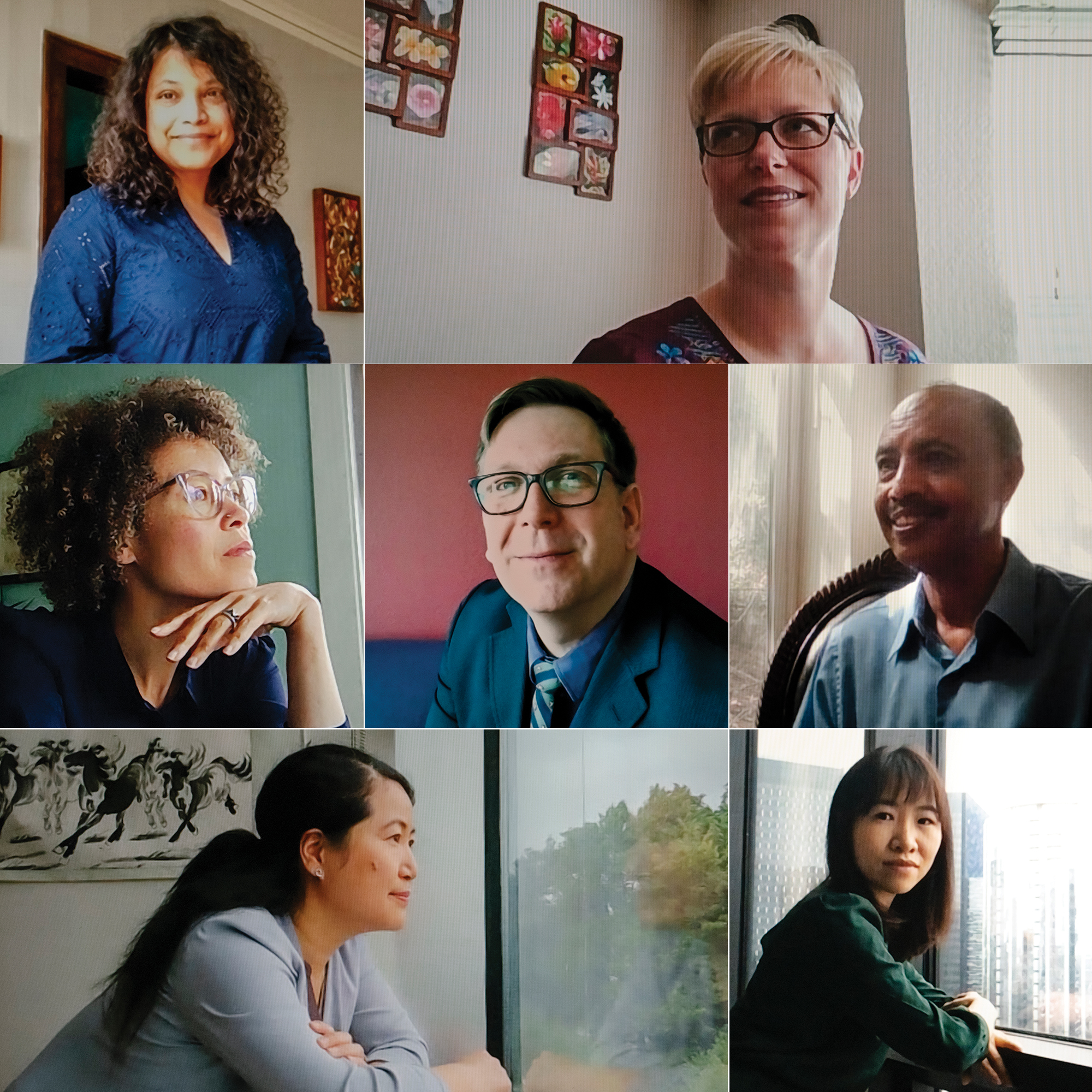
Professors nonpareil Professors nonpareil Professors nonpareil
One year into remote learning, these seven distinguished scholars kept class as fresh and relevant as ever. Find a seat and meet your 2021 Distinguished Teachers of the Year.
Photos by Jackie Russo | June 2021 issue
We asked this year’s Distinguished Teaching Award winners about how their lives have changed during the COVID-19 pandemic.
Wendy Barrington
School of Nursing
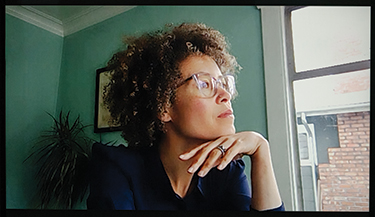
Biggest lesson about teaching and/or mentoring that you’ve learned during the pandemic.
I am usually a pretty flexible individual in how I relate to people, but over the past year I’ve intentionally applied an anti-racist framework to my flexibility. The main thing I’ve done is to center the experience of BIPOC students and communities in how I collaboratively curate content, facilitate problem-based workshops and discussions, create assignments, and assign deadlines. This expansion of ways of knowing, being, and doing in the classroom environment is a form of anti-racist flexibility.
New area of research or interest that you have developed or discovered since or because of the pandemic (interpret that as broadly as you wish).
The dual pandemics of racism and COVID-19 has shown a spotlight on health disparities. While the stage and story is not new, the characters have been different—we have police brutality returning as a veteran actor as well as the debut of COVID-19 in starring roles. Watching the events unfold over the past year has compelled me to pivot the orientation of my work to be explicitly anti-racist. To adopt critical race and anti-racist theoretical frameworks in every aspect of my roles as faculty as well as community member.
Favorite work-from-home meal or snack that powers you through a long digital day?
Coffee with frothed unsweetened vanilla almond milk. And cookies whenever I can get them! Lemon cookies are my favorite. Not particularly healthy—so maybe I should say fruit?
Name a teacher or mentor who had a big impact on your life and helped you to get this point where you are being recognized for this award.
My most staunch supporter, champion, and mentor has been Dr. Shirley A.A. Beresford, emeritus faculty in the Department of Epidemiology. I model my teaching and mentoring approach on hers which I have benefited from starting as a first year PhD student until now–almost 14 years later! She has been rigorous, empathetic, graceful, and supportive in her mentorship.
It’s your soapbox: Name one issue you want the readers to go study up on and learn about. This can be timely or timeless.
There is much history that is not part of our civics lessons that informs so much of what is happening today. These mechanisms are what perpetuate social injustices that result in health disparities—and will continue to do so until they are disrupted. It should not be about whether these policies and practices are intentionally racist—it should be about whether the impact of these policies and practices are racist. And a simple way of assessing racist impact is by asking the question, “Does this policy or practice disproportionately harm Black, Indigenous, and People of Color (BIPOC) communities?” If yes, its racist. Let’s fix it. Now. It’s not about you or me—it’s about justice. It’s about us.
Andrea D. Carroll
Associate Teaching Professor, Department of Chemistry
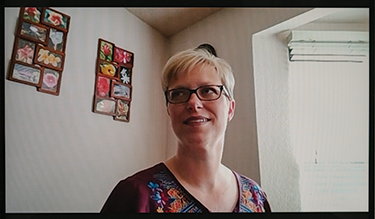
Thanks to vaccines, we are hoping to be back on campus in the fall. What about this prospect makes you most excited?
I am most excited about returning to in-person labs and office hours and getting to see student faces during class. There is so much non-verbal communication that I rely on during class and office hours to gauge student understanding – I have missed that terribly in the past year. With a 300-seat lecture hall and 8 teaching labs just outside my office, you never want to head into the hallway during class change if you don’t really have somewhere to be, but I do miss the hallway chatter, the rooms full of students working on experiments, and the general energy and camaraderie that only comes with being together on campus.
Biggest lesson about teaching and/or mentoring that you’ve learned during the pandemic.
As I have worked to pivot to remote learning and to navigate a relatively foreign environment of delivering ALL course content online, including the labs, I have been driven not only by the need to adapt to the circumstances but also by the desire to provide students with access to material in a way that meets them where they are in their perceptions of and interactions with the world and the desire to build resources that will have lifespans and relevance beyond when we return to in-person learning.
Favorite work-from-home meal or snack that powers you through a long digital day?
Coffee… with a little sweetener and often with chocolate-caramel creamer, but always decaf. The warm cup in my hands and the “get up and move” to walk up the stairs to the kitchen and back have been part of my daily routine.
Weili Ge
Professor of Accounting, Foster School of Business
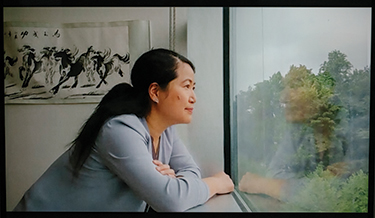
Biggest lesson about teaching and/or mentoring that you’ve learned during the pandemic.
A deep sense of caring for students’ learning and growth should permeate every aspect of teaching even in the best of times. It is even more important during the pandemic, when learning is especially challenging for students because of the remote form of classes and the anxiety caused by the overall environment. One thing I have learned is that genuine care for students as individuals, combined with a passion for the subject matter, can overcome all barriers, including cultural differences, an accent in English, and the challenges of online learning due to COVID-19.
New area of research or interest that you have developed or discovered since or because of the pandemic (interpret that as broadly as you wish).
I have always been fascinated by human altruism and the related pro-social behavior. Why do people do what they do for one another? What are the consequences of altruistic behavior? During this pandemic, we have observed many examples of altruistic behavior such as volunteering for the clinical trials of the COVID-19 vaccine, donating convalescent plasma, and volunteering to help New York hospitals during NYC’s most difficult time. My co-authors and I have started a series of research projects related to the pro-social behavior of corporate executives. Overall, we find that executives’ pro-social behavior is significantly associated with their career development and on-the-job decision making.
Name one issue you want the readers to go study up on and learn about. This can be timely or timeless.
I would encourage readers to study what success is. Specifically, think about these questions: (1) What is success? (2) How shall we measure success? Some books for reference:
Designing Your Life by Bill Burnett and Dave Evans; How Will You Measure Your Life? by Clayton Christensen; and Success Built To Last by Jerry Porras, Steward Emery, and Mark Thompson.
New hobby or pastime picked up during quarantine that has nothing to do with your job.
My seven-year-old and nine-year-old kids both picked up chess as their hobby during quarantine. They taught me how to play chess and it has been lots of fun!
Tadesse Ghirmai
Associate Professor; UW Bothell, Electrical Engineering
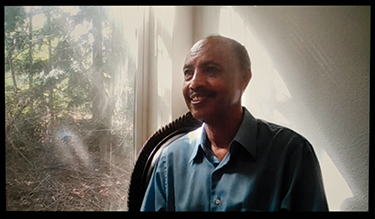
Biggest lesson about teaching and/or mentoring that you’ve learned during the pandemic.
During the pandemic and protests for racial equality, many of our students struggled. Flexibility and student accommodations have helped us to get through the difficult time. Therefore, the biggest lesson for me during the pandemic is the reaffirmation that empathy is an essential component in the success of the teaching and learning process.
New area of research or interest that you have developed or discovered since or because of the pandemic (interpret that as broadly as you wish).
I have developed an interest in listening to music from different countries. Although I do not understand the lyrics of most of the songs, I enjoy the music.
Favorite work-from-home meal or snack that powers you through a long digital day? Interestingly, I am trying intermittent fasting for the last 10 months. I fast for 16 hours and eat only during the remaining eight hours. I feel good about it.
New hobby or pastime picked up during quarantine that has nothing to do with your job.
One thing positive about the quarantine time is that I spent a lot more time with family in the last year. As a family, we developed a habit of walking together for about 3 miles a day.
Theodore Myhre
Teaching Professor, UW School of Law
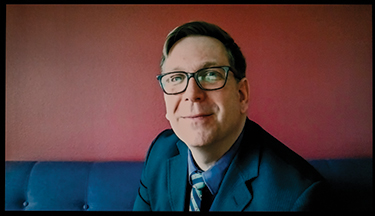
New area of research or interest that you have developed or discovered since or because of the pandemic (interpret that as broadly as you wish).
The pandemic removed the day-to-day busyness of life that takes our focus away from deeper issues by keeping our focus on superficial ones. So, when the Black Lives Matter movement exploded across the country in reaction to systematic police violence, the country as a whole had the space to actually understand the inequity in our culture. I began to look critically at legal education. I realized that legal education in the United States has become exclusive and elitist, depriving most people of even basic legal literacy. If social equity and racial justice matter, what do we do about this? The answer: empower people with legal knowledge and skills. Law should not be reserved for an elite few and exclude the vast majority. Rather, we need to move legal education into grade schools, high schools, colleges and universities. We need to teach teachers. We need legal training for people outside of school, too. Even police officers who are trained to enforce the law are not trained in the law. And that has life-threatening results.
Favorite work-from-home meal or snack that powers you through a long digital day?
Chicken 65 Biryani from Ruchi has been the best take-out dinner and lunch. So good, so flavorful, so yummy. It chases the blues away with spices.
New hobby or pastime picked up during quarantine that has nothing to do with your job?
My husband and I are obsessed with “RuPaul’s Drag Race” and loved the way they adapted the show to pandemic protocols—super creative! We also try to go on a remote hiking adventure when the weather allows. And for our spirits, we started a tradition of watching the sunset together while sipping our favorite cocktail and saying something that we are grateful for that day.
Name one issue you want readers to study up on and learn about. This can be timely or timeless.
I want people to engage with law and politics. There are concrete changes that we can make to help remedy social inequality. Voter suppression, qualified immunity, police accountability, mass incarceration, employment and housing discrimination, and unrestricted corporate lobbying are all problems that we can actually solve if we work cooperatively and diligently together. But the solutions will require folks to understand the legal doctrines and laws related to each of them. Fairness and justice do not occur without us working together and pushing hard for structural changes.
Weichao Yuwen
UW Tacoma, School of Nursing & Healthcare Leadership
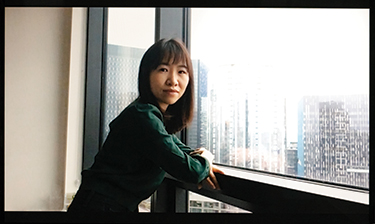
New area of research or interest that you have developed or discovered since or because of the pandemic (interpret that as broadly as you wish).
I adopted a dog named Scooter right before the pandemic, and my life has changed in a very positive way since then. Since my research mainly focuses on supporting families, this experience has also helped me broaden my understanding about self-care and family care.
New hobby or pastime picked up during quarantine that has nothing to do with your job.
Crafts like macrame, weaving, ceramic making, painting, beeswax wrap making, etc.
Favorite work-from-home meal or snack that powers you through a long digital day?
Latte, milk tea with toppings, chai tea, etc. Basically, liquid with caffeine and milk. My tolerance has gone up drastically since the pandemic. I used to only need one cup of tea in the morning, now it’s about two cups of coffee and two cups of tea and I need to intentionally space them out to last all day.
Name a teacher or mentor who had a big impact on your life and helped you to get this point where you are being recognized for this award.
Tanya Velasquez, Associate Teaching Professor in Sociology at UW Tacoma.
Name one issue you want the readers to go study up on and learn about. This can be timely or timeless.
The model minority myth.
Sarah Zaman
UW Medicine, Pediatrics
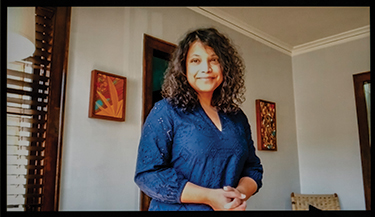
Name a teacher or mentor who had a big impact on your life and helped you to get this point where you are being recognized for this award.
While helping my mother navigate a long illness, I’ve reflected on how she shaped me. My mom sees the world through a NASA engineer’s lens. She also lives her life in joyful exclamation points. I inherited her distinctive mix of stubborn logic, excitable curiosity, and wonder. That gift shaped who I am as a teacher and doctor. My mother was my first and best mentor — so Mom, this award is really for you.
Biggest lesson about teaching and/or mentoring that you’ve learned during the pandemic.
Everyone’s personal and professional lives collided this year. I found myself writing recommendation letters from my mother’s hospital bedside. As she recovered, I started mentoring via text message and teaching across time zones. I gave my first Zoom lecture from the practice grocery store in my mom’s rehabilitation hospital — while trainees kindly ignored the produce shelves behind me, because I didn’t have enough Zoom game to change my background. I’ve been grateful for these teaching moments. They were improvised and unconventional — but they were also reassuringly meaningful and joyful. This tangled, tough year made me love teaching and mentoring even more.
Thanks to vaccines, we are hoping to be back on campus in the fall. What about this prospect makes you most excited?
In our hospitals and clinics, I look forward to the return of small connections. An empathetic smile, fully visible again. A kind hand on a shoulder, uncomplicated by social distance. Family members walking alongside patients, without infection prevention limitations. Medicine needs those quiet moments of solidarity. Once vaccines help us reconnect, we’ll cherish each small connection even more now.